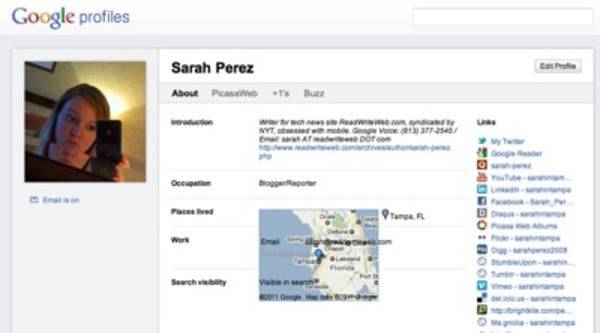With this week’s launch of a new tool called “Me on the Web,” Google wants to help users better understand and manage their online identities, as well as learn how to remove unwanted content from Google search results.

Through Google’s online dashboard, available to anyone with a Google account, this added section helps you track your online mentions, view your public profiles on various social networking sites and blogs, manage your digital identity and even learn the process involved in having items removed from the Web entirely.
Google is Not the Web
What so many Internet users don’t understand, says Google, is that it doesn’t control the Web or the websites on it. Those are outside Google’s control. Instead, it has tools that crawl the Web and rank the pages it finds, so that when you search for topics, the most relevant items appear at the top of the list. That may seem like common knowledge, but it’s not. The Web is still a mysterious place to many of its users, especially when it comes to the details of Google’s role in the spread of information.
In addition, the challenges of how you should behave online, what items should be published publicly and what you should do about unwanted, personal or damaging content are complex. The negative effects of “bad” online behavior aren’t often realized until it’s too late. And, as the famous line from the Facebook movie “The Social Network” reminded us, “The Internet isn’t written in pencil…it’s written in ink.” While there are some political initiatives like the EU’s push for an “Internet erase button” of sorts, for now, the burden is almost entirely on individuals to police and manage their digital identities.
Unfortunately for the more privacy-minded, what’s posted about you isn’t always in your control. As friends, family and even strangers or the media write about you, post pictures bearing your name, or otherwise refer to you in ways Google can understand, maintaining your privacy can quickly become a losing battle.
What “Me on the Web” Provides
With “Me on the Web,” Google makes it easier to cyberstalk yourself, with easy tools to see where you appear online, essentially centralizing access to older tools like Google Alerts or your Google profile. It’s one step closer to Google’s vision of how online identity works.


Unlike Facebook’s push towards radical openness, through ever-changing privacy policy updates that automatically reveal information you would rather keep private, Google, surprisingly, appears to believe that there are times when you have a right to such privacy.
“(W)hile you may want to identify yourself by name when you post an answer to a question in a forum so that readers know the response is reputable, if you upload videos about a controversial cause you may prefer to post under a pseudonym,” reads a Google blog post.
But when mistakes, embarrassments, or other violations of perceived right to privacy occur, many find themselves lost. Companies claiming to restore your online reputation have stepped in to help, but some are more trustworthy than others. Now Google is putting similar tools in your control, with guides to removing pages or sites from Google’s search results, details on how to contact webmasters with change and removal requests and even links to an online tool to guide you through reporting problems directly to Google, when applicable laws warrant. Most of these resources are not new, but having them centralized, conveniently located and linked, is. And, says Google, this is just one of the first steps the company is taking to “help make managing your identity online simpler.” Expect more to come.










